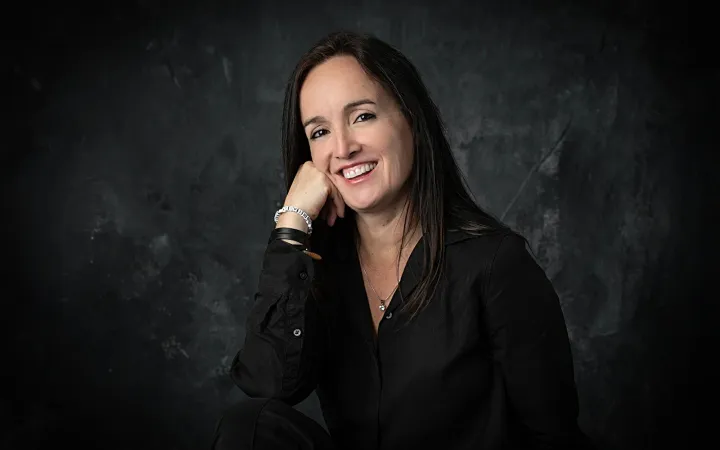Por Nurit Martínez
Larga es la lista de temas que existen en el segundo piso de la Cuarta Transformación en el caso de la educación básica. La agenda no es precisa en cuanto al tema educativo y, en cambio, sí está llena de pendientes en la parte administrativa, infraestructura, atención al rezago educativo y una propuesta clara de lo que significa la Nueva Escuela Mexicana sobre la visión de Nación, interpretación histórica y, particularmente, la democratización sindical: ¿qué hacemos con el SNTE y la CNTE o de verdad habrá paso a nuevos escenarios de democracia sindical?
Hasta ahora, en la ruta que marcó la presidenta Claudia Sheinbaum Pardo y su secretario de Educación Pública, Mario Delgado, no hay claridad de nada y sí un discurso que intenta convencer de que viene algo nuevo.
El discurso en la educación, ya vimos durante los últimos seis años, estuvo lleno de buenos deseos, de mucha expectativa y, sobre todo, con una alta carga ideológica mal aplicada. Ojalá hubiéramos tenido la oportunidad de tener una interpretación de nuestra historia moderna. Habría sido aleccionador en muchos sentidos, tener la interpretación de la izquierda de muchos de los acontecimientos en nuestro país, pero solo alcanzó para que una persona desde el área de Materiales Educativos nos quisiera recetar sus máximas aspiraciones de manipulación electoral.
La creación de libros de texto gratuito sigue siendo una tarea pendiente. México no necesita manipular su futuro; necesita recrear su historia con la certeza y el reconocimiento de que está lleno de víctimas y victimarios. Esa visión ayuda mucho más que la intentona de manipulación político-electoral para los próximos años.
Si esa es la visión de Morena, hay muchos espacios adicionales en donde se puede crear. Es mejor crear ciudadanos conscientes de las atrocidades cometidas en el pasado, individuos críticos y con razonamiento claro para tomar decisiones, que crear bastiones de zombis queriendo votar por Morena a ojos cerrados. ¿Acaso no confían en sus propias políticas sociales y económicas?
Ahí hay una tarea clara, y él o la sucesora de Marx Arriaga son centrales en ese puesto estratégico en la administración de la presidenta. El país no tiene que inventar perfiles; especialistas brotan en múltiples instituciones, solo hay que elegir los más adecuados.
Si el enfoque en la tarea educativa en los próximos años es la infraestructura, ahí no hay recurso que alcance, máxime si se observa que centenares o millares de escuelas están ubicadas en zonas de riesgo. Hasta ahora, nadie que haya estado frente a esta responsabilidad de construcción, mantenimiento y remodelación ha podido encontrar la medida necesaria para atender de igual manera estos tres escenarios. Más aún si frente a esa decisión se encuentran miles de planteles escolares que requieren infraestructura básica: agua, sanitarios, techos, pisos, paredes, pizarrones, sillas o mesa bancos para que pueda ocurrir el milagro educativo.
El perfil de este encargo sí es administrativo y técnico, pero sobre todo político, porque sin un diálogo claro, abierto, transparente y comprometido entre presidentes municipales, alcaldes, legisladores de todos los niveles, gobernadores y secretarios de estado, padres de familia y empresarios, esto no es posible.
En la parte administrativa, el organigrama de la educación básica está inmerso en múltiples procesos de gestión y administración que consumen mucho tiempo en trámites burocráticos, miles de ellos que podrían ser eliminados si cada quien hace la tarea que le corresponde.
En el sector privado, esos trámites de gestión, evaluación o certificación escolar no solo provocan ese retraso de actividades, sino también significan un costo alto e, incluso, abren posibilidades para la negociación con falta de transparencia y abundante corrupción.
La presidenta Sheinbaum y el secretario Delgado han señalado, tras la elección, que atender la demanda de las organizaciones sindicales para acabar con la unidad encargada de la asignación de las plazas y la promoción de cargos en la educación básica tendrá un nuevo rumbo.
Hasta ahora no han dicho cuál será el nuevo organismo o instancia que garantizará la transparencia y certeza en la asignación de puestos laborales alejados de toda corrupción. Para ese encargo, el perfil debiera ser sí muy técnico, conocer a fondo las entrañas y negociaciones que en los oscurito realizan tanto el Sindicato Nacional de Trabajadores de la Educación como la Coordinadora Nacional de Trabajadores de la Educación.
Ambas organizaciones han aprendido durante decenas de años que la negociación económica y política puede estar por encima de lo educativo. Lo último que les ha importado son los niños que están en las escuelas y menos aún si hay decenas o cientos de miles de profesores bien preparados por sobre aquellos recomendados, personas que, sin un perfil, están dispuestas a heredar una plaza o que, sin los estudios necesarios, buscan un empleo, cualquiera que sea, pero empleo al fin.
Ya no digamos si ellos o ellas tienen perfiles idóneos e, insisto, si sus perfiles psicológicos o patológicos no los llevan a esos lugares para encontrar cómo satisfacer deseos de acoso y abuso sexual. Tan crudo, pero tan cierto; por ello, en los planteles de la educación básica no se ha podido erradicar estos cruentos delitos.
Para concluir con esta agenda pendiente y sin claridad está todo el espectro relacionado con la democratización sindical. La reforma laboral no ha sido capaz de dar claridad a este espectro sindical, que los maestros tengan la posibilidad de elegir a sus dirigentes, afiliarse a la organización que más les convenga sin poner en riesgo sus derechos y estabilidad laborales. Mientras prevalezca la idea de que las dos organizaciones sindicales son un motor electoral, los derechos de democracia sindical seguirán siendo una aspiración entre los docentes de aula.
La agenda se puede extender aún más, pero ante las preguntas y el desdoblamiento de los temas, se requiere que la autoridad tenga claridad de lo que busca; de lo contrario, el segundo piso de la Cuarta Transformación seguirá por la ruta de la gestión de bote pateado: patear para encontrar y luego volver a patear los temas pendientes para el futuro.

Las opiniones expresadas son responsabilidad de sus autoras y son absolutamente independientes a la postura y línea editorial de Opinión 51.






Comments ()